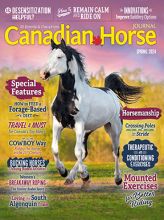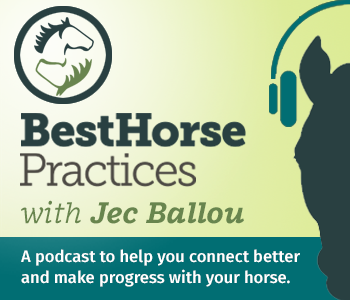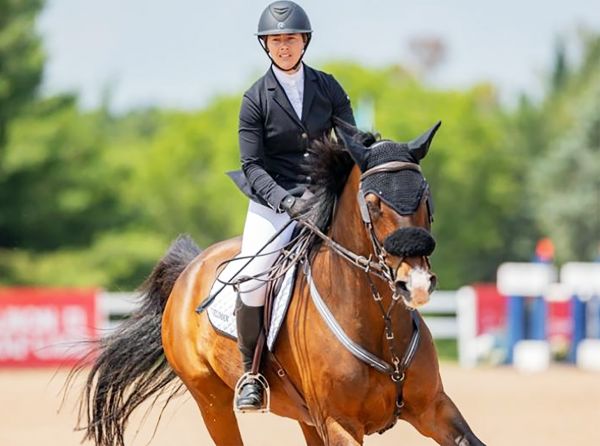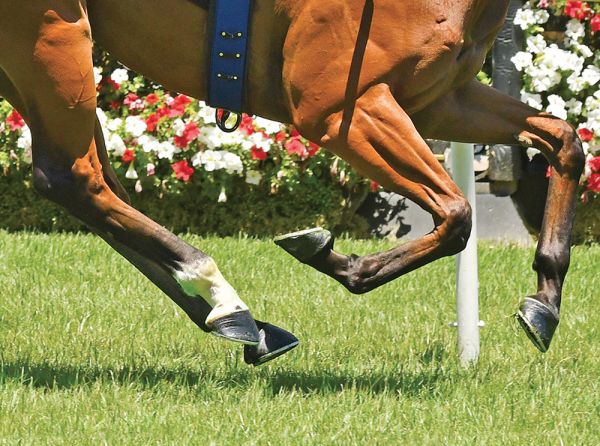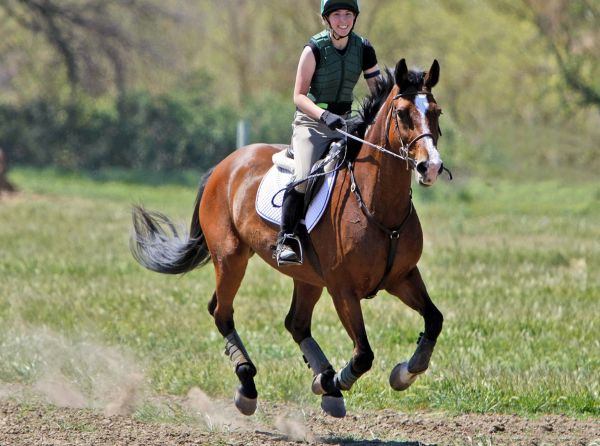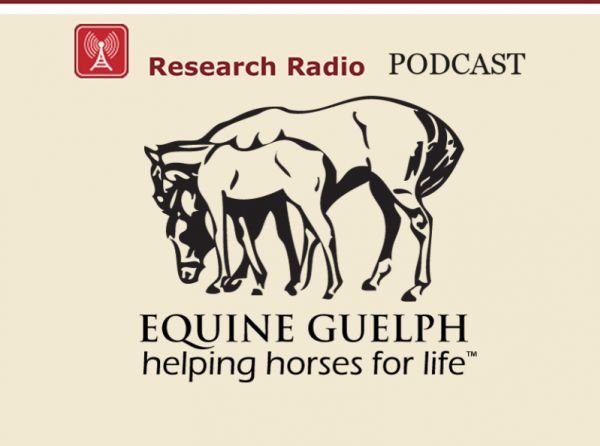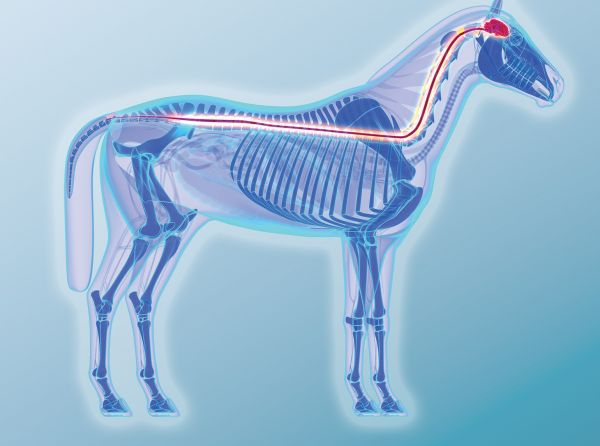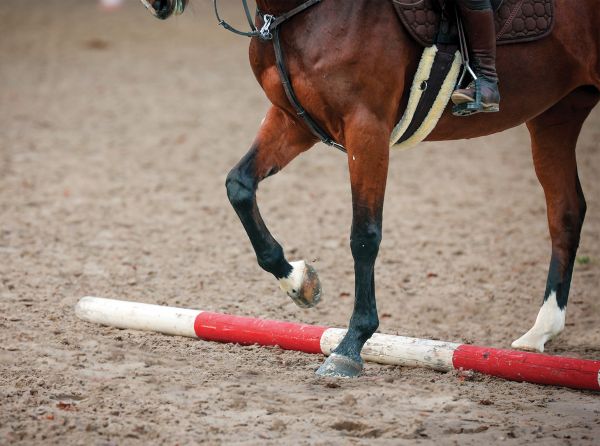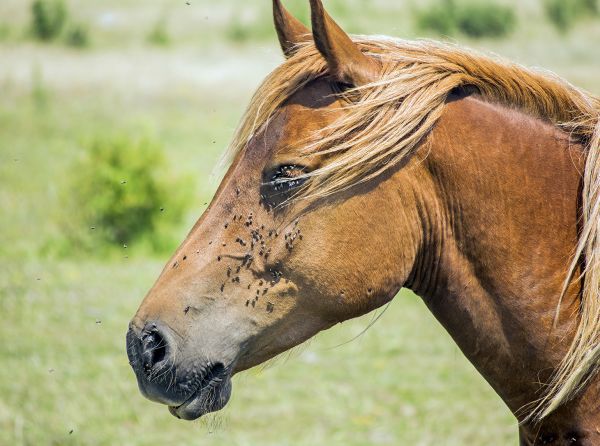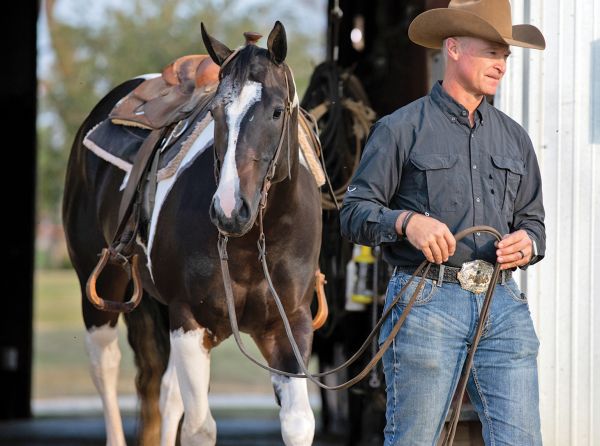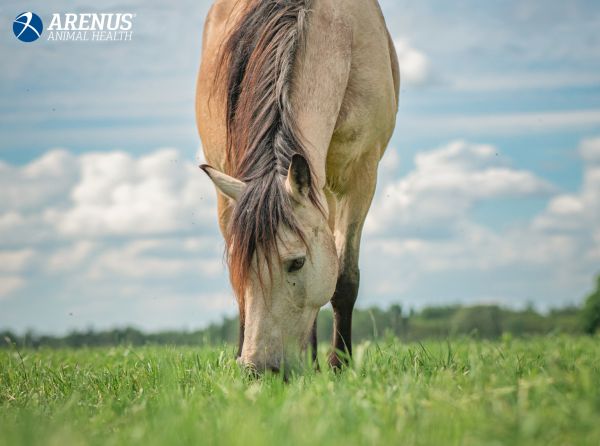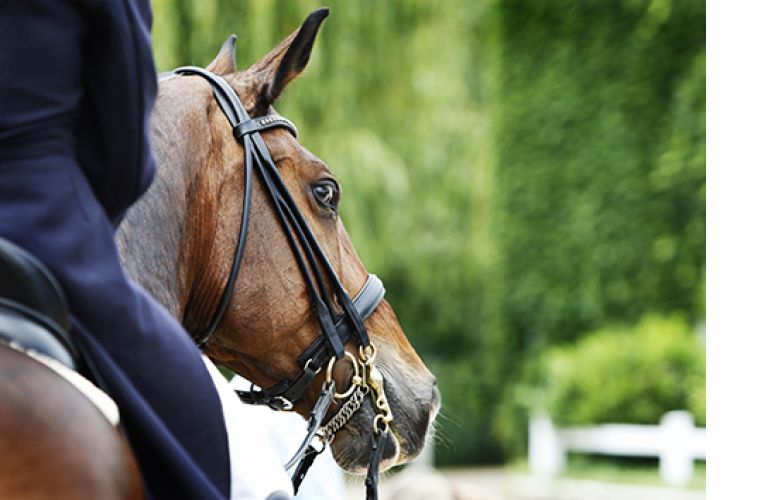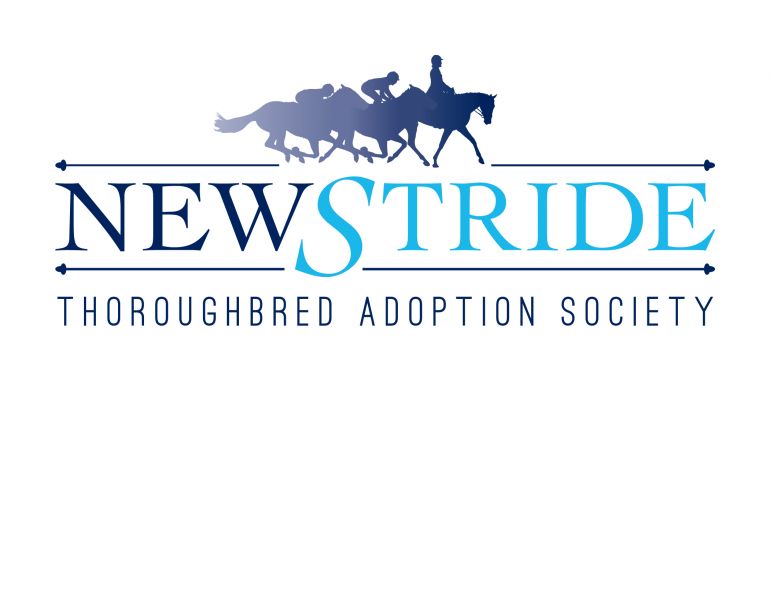By Kentucky Equine Research
How old is a senior horse?
The answer is different for each equine. Some horses seem old and feeble at age 15; others are still going strong well into their 20s. As with human beings, many things, including health history, use, care, conformation, and genetic factors, can influence the condition and overall well-being of aged horses.
As a general rule, horses begin to slow down somewhat by their late teen years and, although the occasional horse lives 30 or even 40 years, most people would consider a horse in its mid-20s to be fairly old. Ponies often have a somewhat longer lifespan than their larger counterparts.
Comparing human and equine years is not an exact science. As a rough estimate, a 20-year-old horse is equivalent to a person in their late 50s, and a 30-year-old horse could be compared to a person in their mid-to-late 80s.
FEEDING SENIORS
Digestion
As horses approach old age, their ability to digest protein, fibre, vitamins, and minerals decreases. Plenty of clean hay and a fortified feed with high quality, easily digestible protein is recommended. Many feed companies have special product formulations based on the unique requirements of senior horses. Water and free choice salt should always be provided.
Dental condition
While regular dental care is important for horses of all ages, it is especially critical for older horses. Sharp edges or hooks on teeth can cause discomfort that keeps the older horse from eating enough to maintain a healthy condition. Very old horses may lose teeth and be unable to chew and grind their feed adequately. For these animals, owners can add water to pelleted feed, forming a mash that is more easily swallowed and digested.
Water-soaked hay cubes can provide fibre to horses that have trouble chewing and swallowing hay.

Access to turnout will help your senior horse keep the weight off, and moving around will limber up stiff muscles and joints. Photo: Robin Duncan Photography
Palatability
No matter what ration is offered, it can’t help the horse if it’s not eaten. Older horses can be picky eaters, resisting anything new or different. Additions or changes to the diet must be made very gradually, not just to avoid putting the horse off its feed but also to allow the gut to adapt to the new type of feed or hay.
Drizzling feed with molasses, Karo syrup, or flavoured Jello may tempt a picky horse to eat. Dusty or moldy feed or hay should never be offered to horses.
Related: Healthy Senior Horse
The Thin Senior
Owners should be able to feel a horse’s ribs, but not see them through the coat. Horses with visible ribs may need a change in management. Try to increase grazing time or feed more hay or better quality hay, possibly with a higher alfalfa percentage.
Increasing the grain ration or adding beet pulp, rice bran, or vegetable oil to the current ration may help the horse take in more calories. Splitting the daily ration into several feedings of no more than five pounds per feeding is suggested. Weighing or taping the horse on a regular basis can help to catch weight loss in its early stages.
Keep in mind that age and loss of muscle tone may give some older horses, especially broodmares, a bony or thin top line (spine and top of ribs), but these horses still have plenty of flesh over their neck and hips, and thus are not truly underweight.
Be sure to evaluate the whole horse when estimating condition in older animals.
The Overweight Senior
Age related changes in metabolism, decreases in training and exercise, and various health conditions may cause older horses to become overweight. Fat horses may find it harder to get up and down easily, and extra weight puts a strain on arthritic joints.
Steps to reduce the chubby horse’s weight include encouraging exercise as tolerated, using a grazing muzzle during turnout hours, and feeding grass hay instead of alfalfa.
Many overweight horses don’t need the calories in a sweet feed, but still require a full complement of vitamins and minerals. A supplement can provide necessary nutrients without an overload of energy.
MANAGING THE SENIOR
Exercise
In general, exercise should be encouraged as the horse is able to tolerate it. In most cases, turnout is preferable to stall confinement, taking care that younger pasture buddies are not allowed to run an older horse to exhaustion. For ridden or driven exercise, warm-up and cool down are essential. Older horses lose muscular strength and fitness, as do aging humans, and each horse’s exercise program should be tailored to the individual’s condition. While a younger horse can sometimes be idle during the week and perform moderately strenuous exercise on a weekend with few ill effects, such a program is likely to result in stiffness, pain, or more serious consequences for the out-of-condition older horse.
Daily check
As with any horse, the older equine should be seen daily. A light grooming is a good way for owners to keep up with injuries, weight changes, and problems with teeth or hooves.
Access to feed, hay, and water
Older horses often end up at the bottom of the herd hierarchy, with younger animals blocking hay and water supplies. Senior horses may need to be turned out in their own paddocks, either with one or two friends or within sight of companions, to allow adequate intake of hay and feed.
Related: The Equine Body Condition Scale

When temperatures drop, a blanket and an increase in the hay ration will help the older horse stay warm and keep weight on. Photo: Robin Duncan Photography
Temperature regulation
Older horses may get cold more easily than younger horses, not only because of thin body condition but because more aggressive horses may prevent them from accessing shelter. Blanketing, turnout with fewer horses, or an increase in the older horse’s hay ration may be solutions. In hot weather, access to a breezy shaded area will help prevent overheating.
Routine veterinary care
Owners should schedule a wellness check-up at least once a year. As part of an exam, a veterinarian can do blood tests to determine thyroid function and other indicators of health. Senior horses also need to stay current on necessary vaccinations, even though they may not travel to shows or rides, and are therefore not exposed to many other horses. Check with your veterinarian to see what protection is needed in your area.
Hoof care
It may be tempting to skip farrier appointments for older horses since they aren’t working or traveling, but these animals need to stay on a regular schedule of trimming or shoeing regardless of activity. Overgrown feet are more susceptible to problems like white line disease, and proper hoof angle can ease the discomfort of navicular disease. Cushing’s syndrome and other metabolic disorders are often linked to laminitis, and regular farrier care can keep victims of these diseases more comfortable.
Chronic pain management
Senior horses may suffer from arthritis, gastric ulcers, navicular disease, and other conditions that produce chronic pain. Dealing with pain can impact appetite and cause horses to lose weight. A veterinarian can usually diagnose and treat the cause of chronic pain. Because some drugs affect the function of kidneys and digestive organs, a veterinarian’s guidance is suggested.
Maintaining the status quo
Older horses may react poorly to change of any kind. A different pasture, the introduction of new horses, or variations in personnel or feed schedules may upset them enough to cause a decreased appetite. Minimize change as much as possible, and watch senior horses carefully for a few days after necessary changes are made.
Related: A Nutritional Plan for the Senior Horse
Related: Caring for the Equine Elder
Main Photo: One of the first steps to reducing the chubby older horse’s weight is to restrict grazing time. Extra weight puts additional strain on arthritic joints and can make it more difficult for the horse to get up and down.


